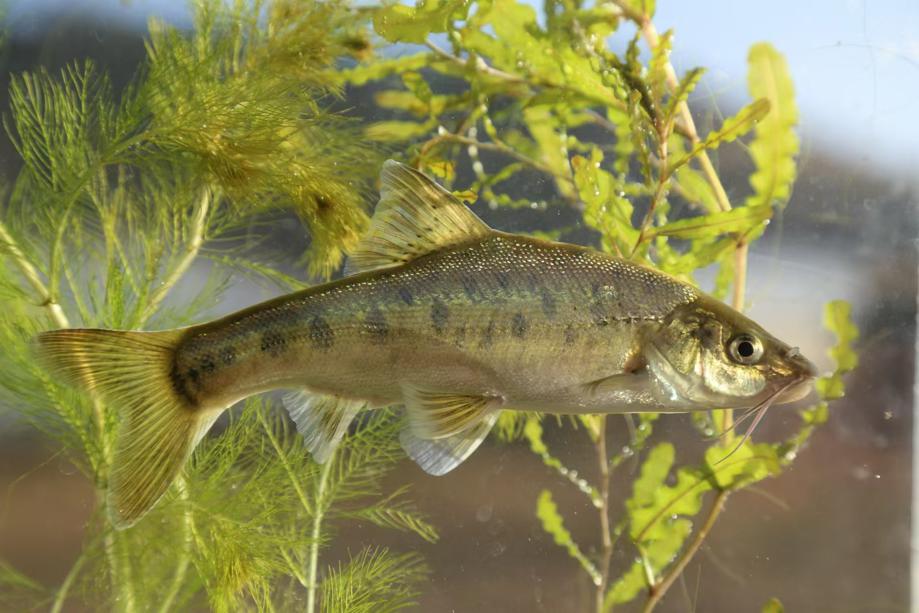Endangered species restored in Yunnan province

An endangered fish species that disappeared four decades ago from the Dianchi Lake, the largest freshwater lake in Yunnan province, has been "reborn" in the Dianchi Lake basin, thanks to scientists' efforts and the improvement of the basin's ecological environment.

The golden-line barbel (Sinocyclocheilus Grahami), a type of rare cave fish originally lives in Dianchi Lake, has been absent from the lake since the 1980s due to factors such as water pollution, reclamation of land from lakes, and invasion of exotic species.
In 2007, researchers from the Chinese Academy of Sciences' Kunming Institute of Zoology achieved a breakthrough in the fish's artificial breeding technology, making it the third Chinese nationally protected fish species to be successfully bred artificially, following the Chinese sturgeon and the red-bellied fish.
Wang Xiaoai, a senior engineer at the Kunming Institute of Zoology, said since 2009, the institute has released over 3 million artificially bred golden-line barbel fingerlings in the Dianchi Lake basin, amid the improvement of the lake's ecological environment and water quality.
"According to our monitoring, these fingerlings have formed a stable population of 400 to 500 for a decade in the Panlong River, one of the major rivers that flow into Dianchi Lake," she said, noting that her research team has also been cultivating the native aquatic plants such as Ottelia acuminata, as well as snails and mussels to restore the local ecosystem.
"Next, we hope to find some fish eggs or fingerlings in the lake, which would demonstrate that the species is capable of reproducing and sustaining itself in the current aquatic ecosystem," Wang said.
To date, the institute has made breakthroughs in artificial breeding techniques for 48 indigenous fish species in Yunnan, and has successfully restored wild populations of nine local fish species, she added.
- UN envoy: In 75 years, China has risen from sufferings to strength
- Handicrafts build strong familial bond
- F&B packaging births new generation of collectors
- Fujian raftsman making life more than just staying afloat
- An American guide for a Chinese museum
- Leaders send greetings on China's 75th anniversary





































